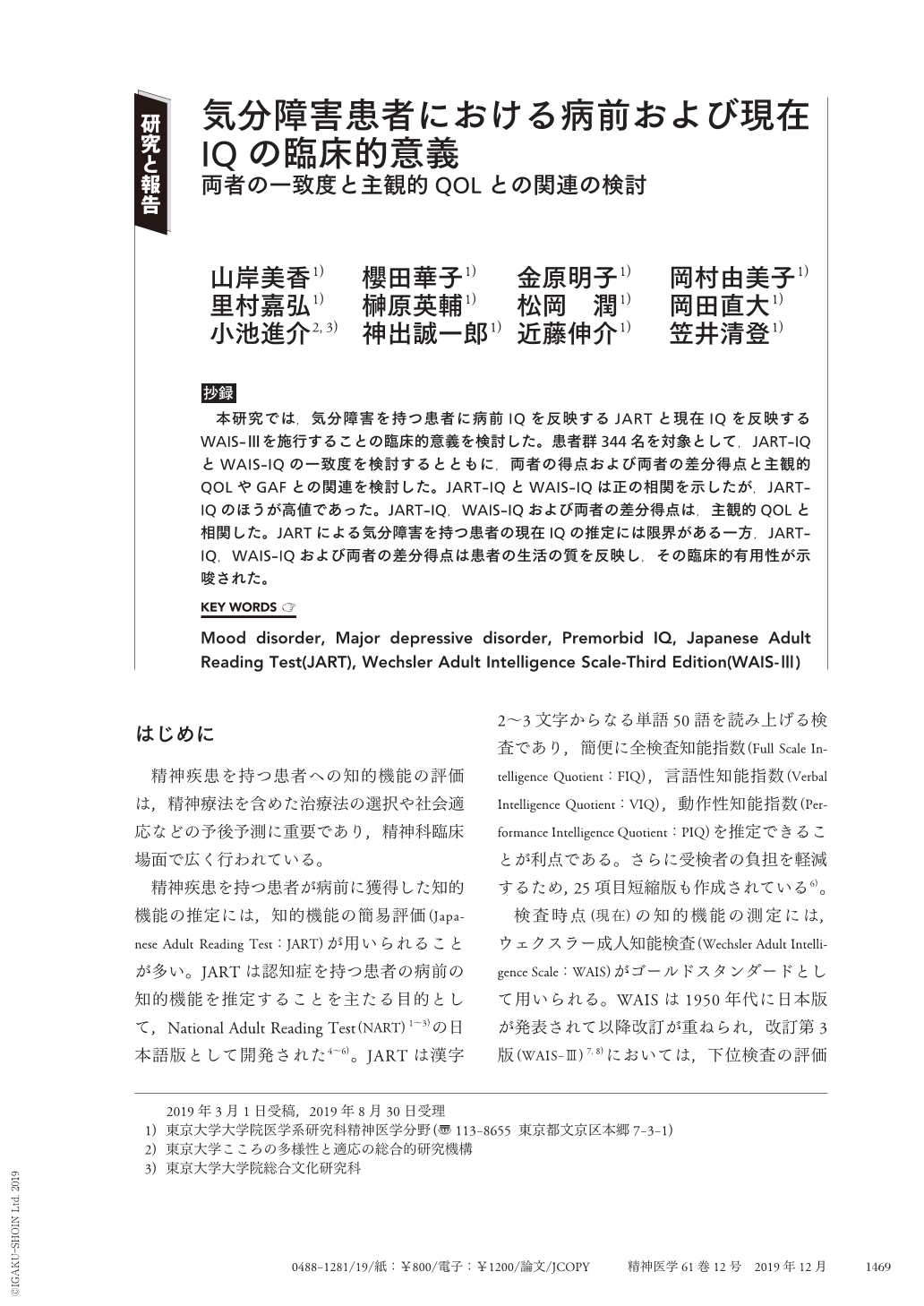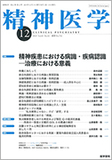Japanese
English
- 有料閲覧
- Abstract 文献概要
- 1ページ目 Look Inside
- 参考文献 Reference
抄録 本研究では,気分障害を持つ患者に病前IQを反映するJARTと現在IQを反映するWAIS-Ⅲを施行することの臨床的意義を検討した。患者群344名を対象として,JART-IQとWAIS-IQの一致度を検討するとともに,両者の得点および両者の差分得点と主観的QOLやGAFとの関連を検討した。JART-IQとWAIS-IQは正の相関を示したが,JART-IQのほうが高値であった。JART-IQ,WAIS-IQおよび両者の差分得点は,主観的QOLと相関した。JARTによる気分障害を持つ患者の現在IQの推定には限界がある一方,JART-IQ,WAIS-IQおよび両者の差分得点は患者の生活の質を反映し,その臨床的有用性が示唆された。
In this study, we examined the clinical significance of using Japanese Adult Reading Test(JART)and Wechsler Adult Intelligence Scale-Third Edition(WAIS-Ⅲ)for the patients with mood disorders, which are considered to reflect premorbid and current intelligence quotient(IQ), respectively. We examined the association between JART-IQ and WAIS-IQ for 344 patients with mood disorders, and the association between JART-IQ, WAIS-IQ, and the discrepancy between them on the one hand, and subjective quality of life(QOL)and global assessment of functioning(GAF)on the other hand. JART-IQ was positively correlated with, but was higher than WAIS-IQ. JART-IQ and WAIS-IQ were positively correlated with subjective QOL, whereas the discrepancy between them was negatively correlated with subjective QOL. The results indicate that while JART overestimates current IQ of the patients with mood disorders, assessing JART-IQ, WAIS-IQ, and their discrepancy is clinically useful because they reflect the quality of life of the patients.

Copyright © 2019, Igaku-Shoin Ltd. All rights reserved.


